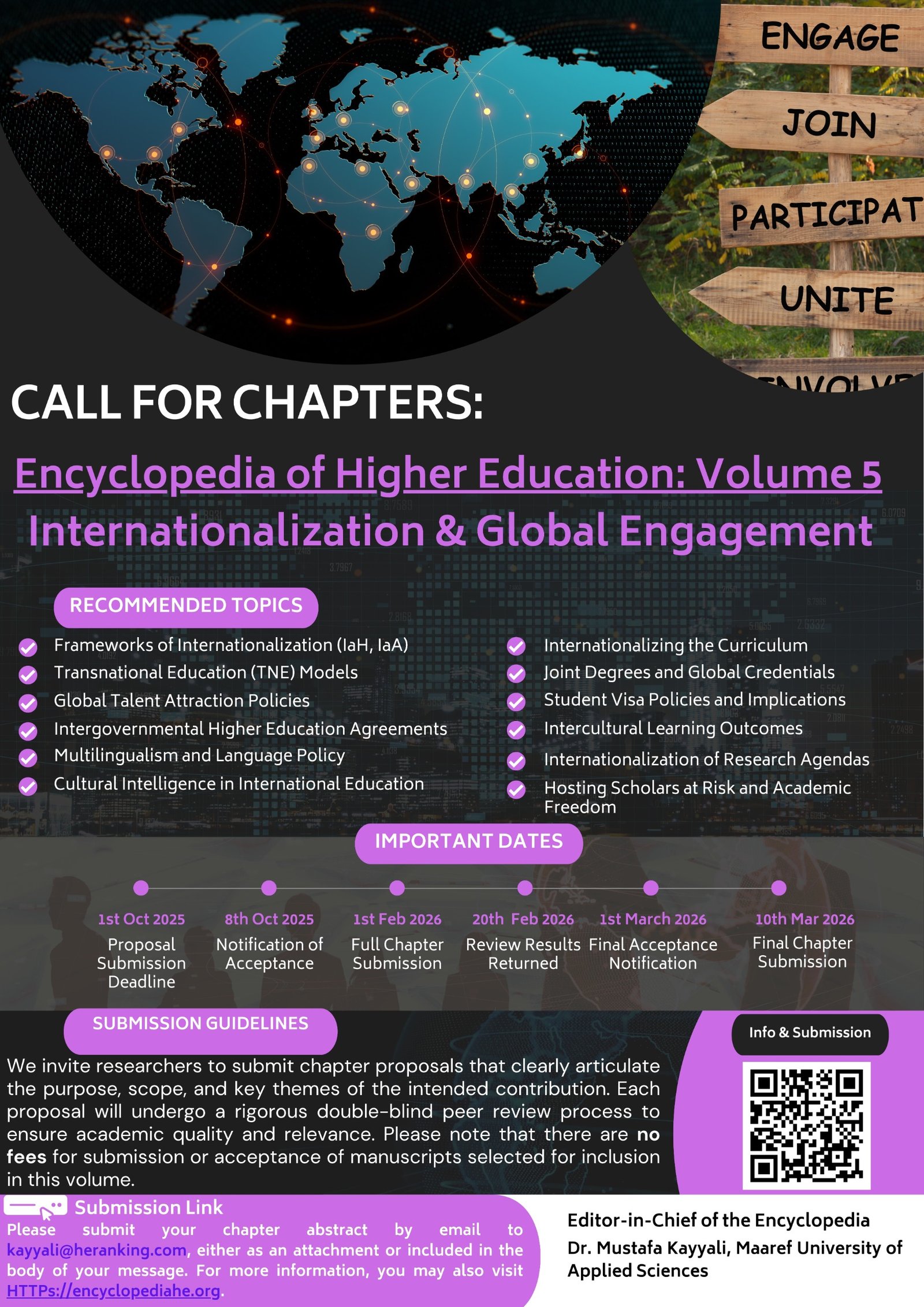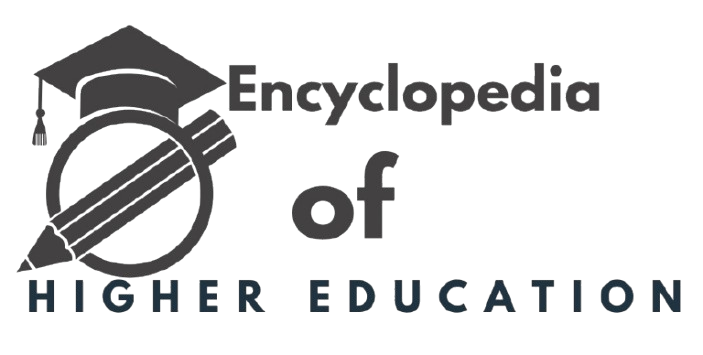Volume 5. Internationalization and Global Engagement
Overview
This volume explores the multi-layered and evolving dimensions of internationalization in higher education, moving beyond traditional mobility models to include comprehensive, systemic, and values-driven global engagement strategies. From frameworks such as Internationalization at Home (IaH) and Abroad (IaA), to transnational education models and joint credentials, the volume offers an in-depth analysis of how universities engage across borders—physically, digitally, and institutionally. It examines the critical role of global partnerships, language policy, cultural adaptation, international alumni, academic diplomacy, and student safety. The chapters also spotlight the geopolitical tensions, ethical questions, and post-pandemic shifts reshaping the global higher education landscape. With growing demand for intercultural competence, inclusivity, and sustainable partnerships, this volume provides both theoretical grounding and practical insights into what it means to be globally engaged today.
Importance and Impact
In an era of interconnected crises—ranging from climate change and conflict to public health and digital divides—internationalization is no longer a luxury or prestige marker but a strategic imperative. This volume underscores the transformative potential of meaningful global engagement for knowledge creation, cultural understanding, and social impact. It empowers institutions to move beyond performative or profit-driven models toward more equitable, ethical, and resilient forms of cooperation. By addressing the complexities of mobility, policy harmonization, multilingual classrooms, and international academic freedom, the volume helps guide institutions, governments, and stakeholders in designing internationalization strategies that are future-proof, inclusive, and aligned with shared global values.
Submission Guidelines
Word Count: 5,000 to 6,000 words
Each chapter should be between 5,000 and 6,000 words, including references. This length allows contributors to develop their argument with sufficient depth while remaining accessible to a global readership.
Language: English
All submissions must be written in clear, academic English. Contributors are encouraged to use inclusive language and ensure clarity for an international audience.
Citation Style: APA (7th edition preferred)
Please follow APA Style, 7th edition, for all in-text citations, reference lists, headings, and formatting. Consistency in referencing ensures academic integrity and ease of cross-referencing.
References: At least 80% published after 2021
To ensure the relevance and timeliness of each chapter, at least 80% of cited sources should be published from 2021 onward. This helps maintain the encyclopedia’s credibility and reflects current research and policy discussions.
File Format: Microsoft Word (.docx)
Submissions must be uploaded in Microsoft Word format (.docx only). This format allows for easier editing, formatting, and review throughout the publication process.
Interested in Contributing?
Researchers and authors who wish to participate in the Encyclopedia of Higher Education project are invited to send their abstract, chapter idea, or full submission directly to: kayyali@heranking.com
Alternatively, you may fill out the following form to express your interest and submit your proposal.

Recommended Topics for Contribution
Authors are welcome to explore any of the following themes—or propose their own original focus aligned with the volume’s scope:
1- Frameworks of Internationalization (IaH, IaA)
2- Transnational Education (TNE) Models
3- Global Talent Attraction Policies
4- Intergovernmental Higher Education Agreements
5- Multilingualism and Language Policy
6- Internationalizing the Curriculum
7- Cultural Intelligence in International Education
8- Joint Degrees and Global Credentials
9- Student Visa Policies and Implications
10- Intercultural Learning Outcomes
11- Hosting Scholars at Risk and Academic Freedom
12- International Alumni Relations and Global Ambassadorship
13- Digital Global Classrooms
14- Internationalization of Research Agendas
15- Internationalization Metrics and Indicators
16- Higher Education Diplomacy and Geopolitical Influence
17- Student Safety and Support in International Contexts
18- Cultural Adaptation and Reverse Culture Shock
19- Mobility of Faculty and Academic Staff
20- International Credit Recognition and Transfer Systems
21- Ethical Dilemmas in Cross-Border Education
22- International Internships and Global Employability
23- Roles of International Offices and Directors
24- Sustainability and Ethics in Global Partnerships
25- South-South Collaboration in Education
26- Language Barriers in International Classrooms
27- Equity and Access in Internationalization
28- Pandemic and Post-Pandemic Mobility Trends
29- International Education Marketing and Branding
30- Legal Frameworks Governing Cross-Border Education
